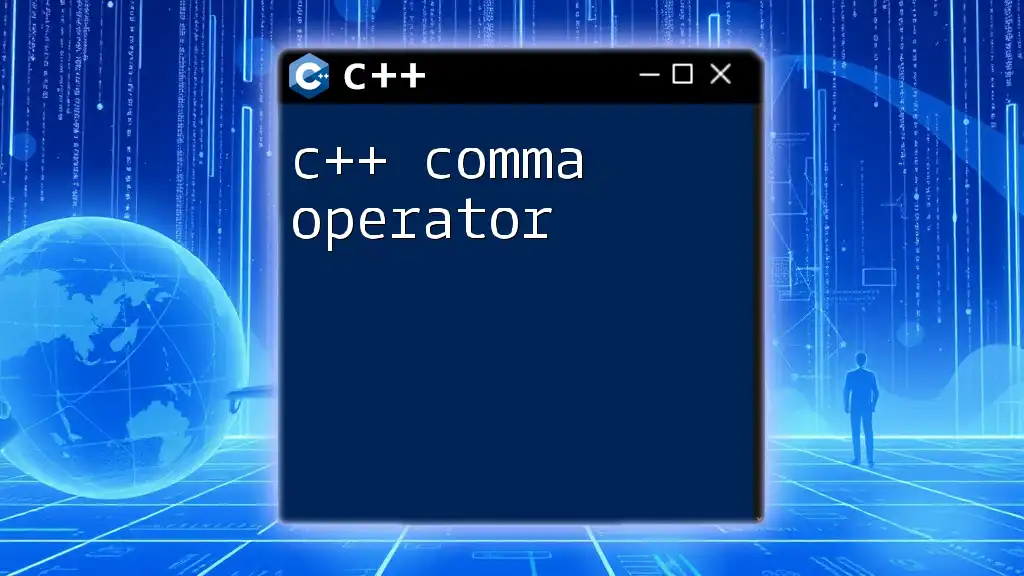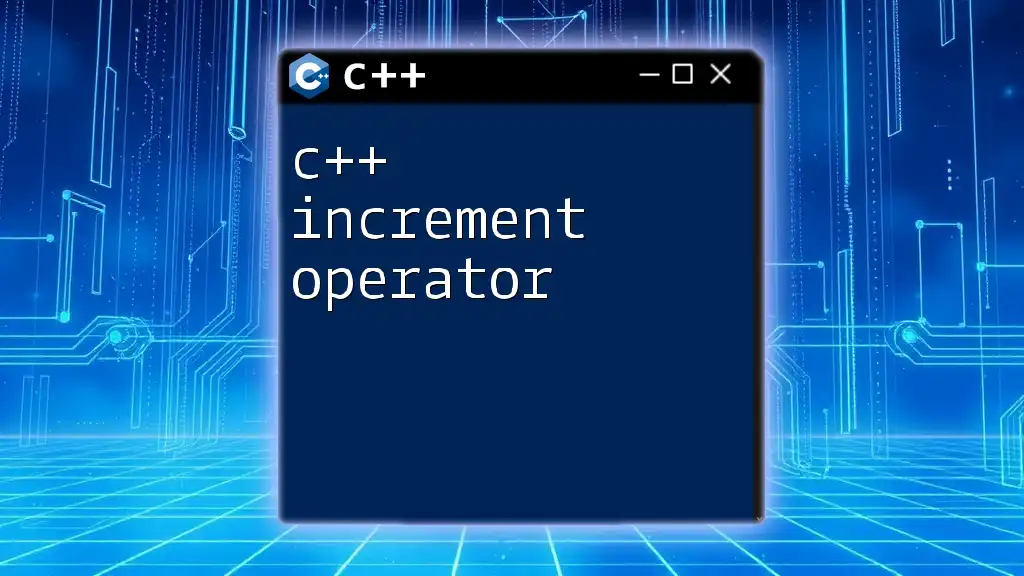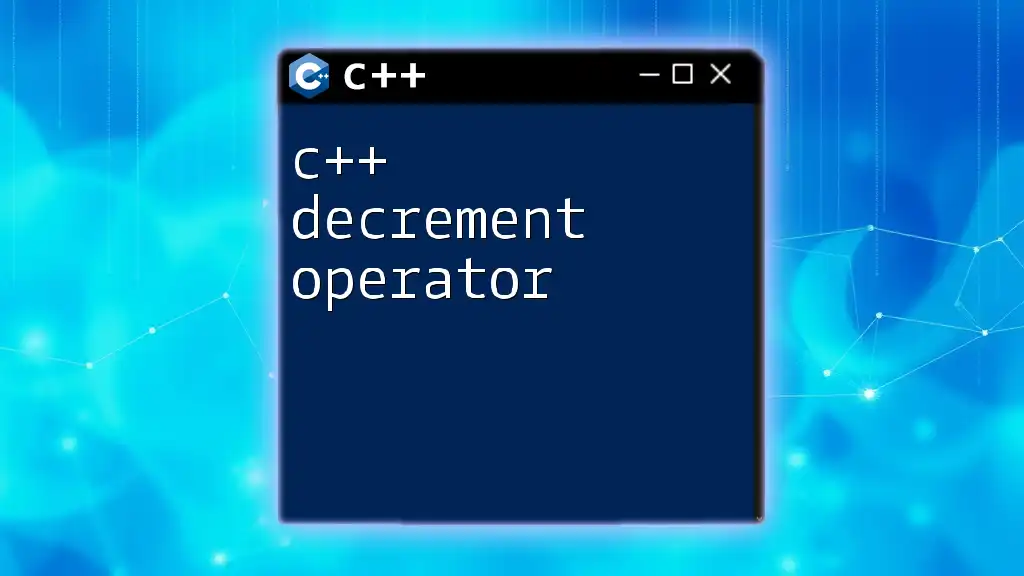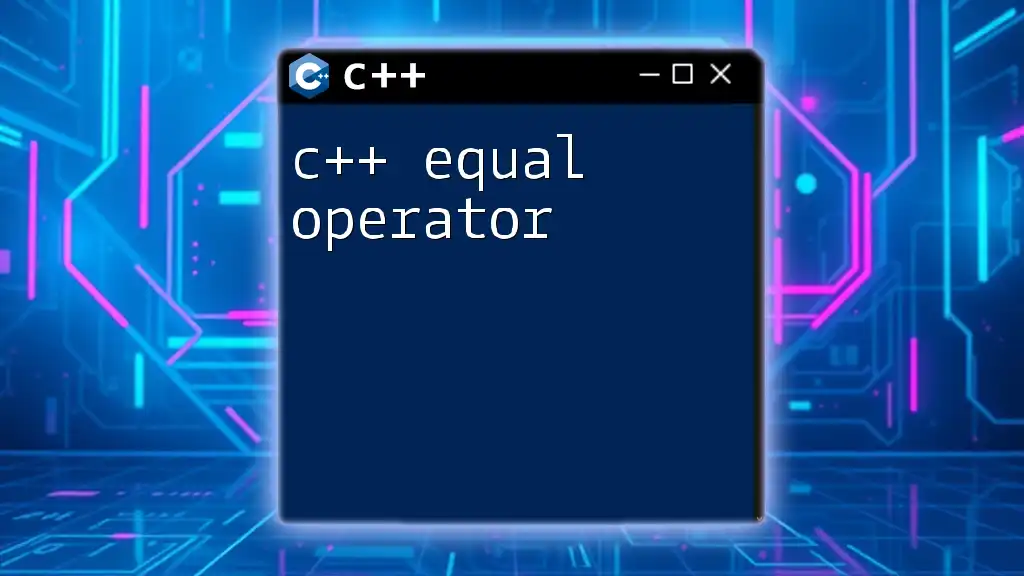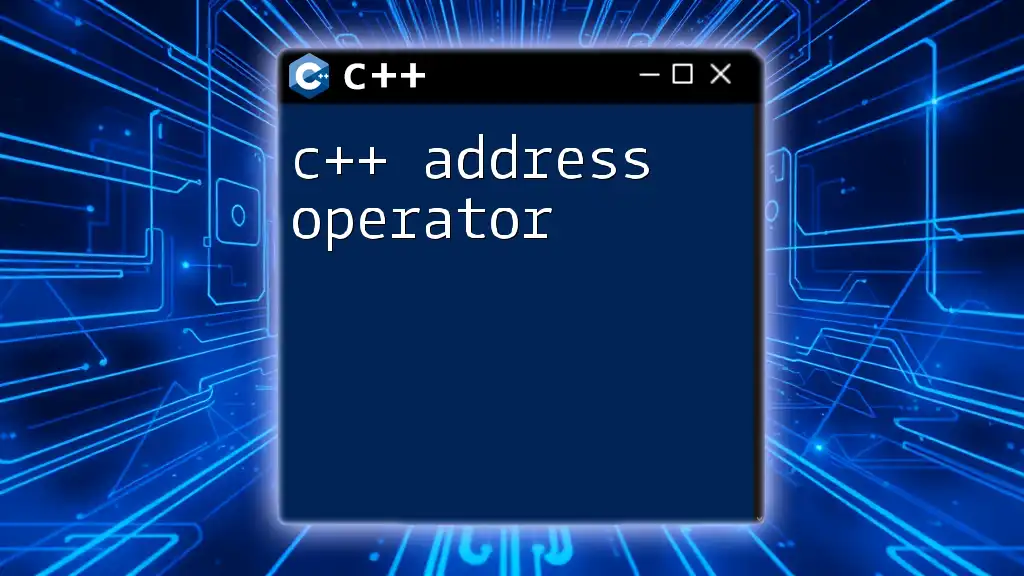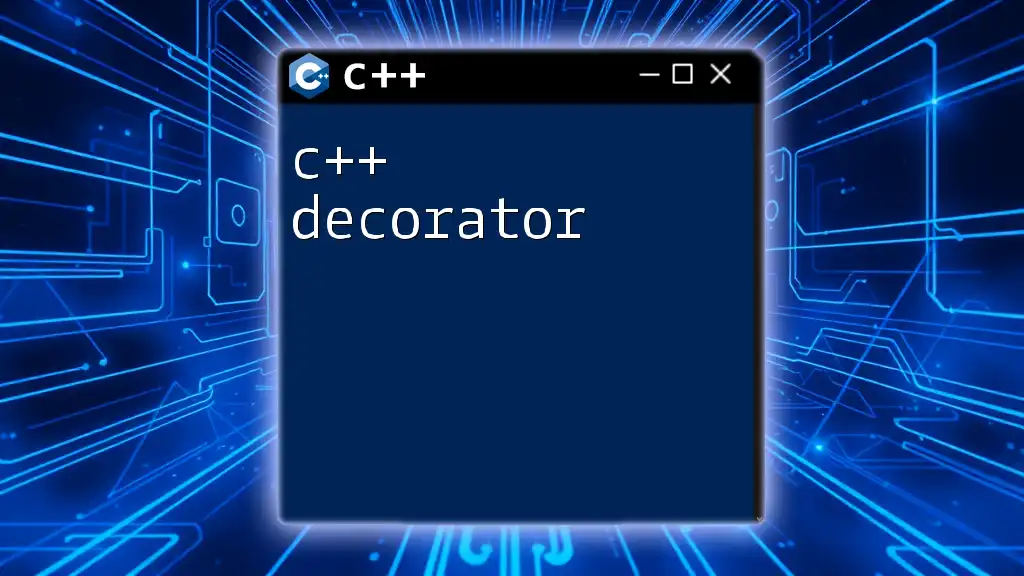In C++, a friend operator allows you to define how objects of a class can be interacted with using operators, enabling custom behavior for operations such as addition or output.
Here's a code snippet demonstrating the use of a friend operator for a simple `Point` class:
#include <iostream>
class Point {
public:
int x, y;
Point(int x, int y) : x(x), y(y) {}
// Friend function for operator overloading
friend std::ostream& operator<<(std::ostream &out, const Point &p) {
out << "(" << p.x << ", " << p.y << ")";
return out;
}
};
int main() {
Point p(1, 2);
std::cout << p << std::endl; // Output: (1, 2)
return 0;
}
Understanding Access Control in C++
In C++, access control is a fundamental aspect of object-oriented design. It determines how and where class members (variables and functions) are accessible. C++ offers three primary access specifiers: public, private, and protected.
- Public members: Accessible from anywhere in the code.
- Private members: Restricted access; only accessible within the class itself.
- Protected members: Similar to private, but accessible to derived classes.
Encapsulation, which is the concept of restricting direct access to an object's data, enables a clearer separation of concerns and enhances maintainability. However, sometimes you may need to grant access beyond the conventional access control mechanisms, which leads us to the concept of the friend operator.
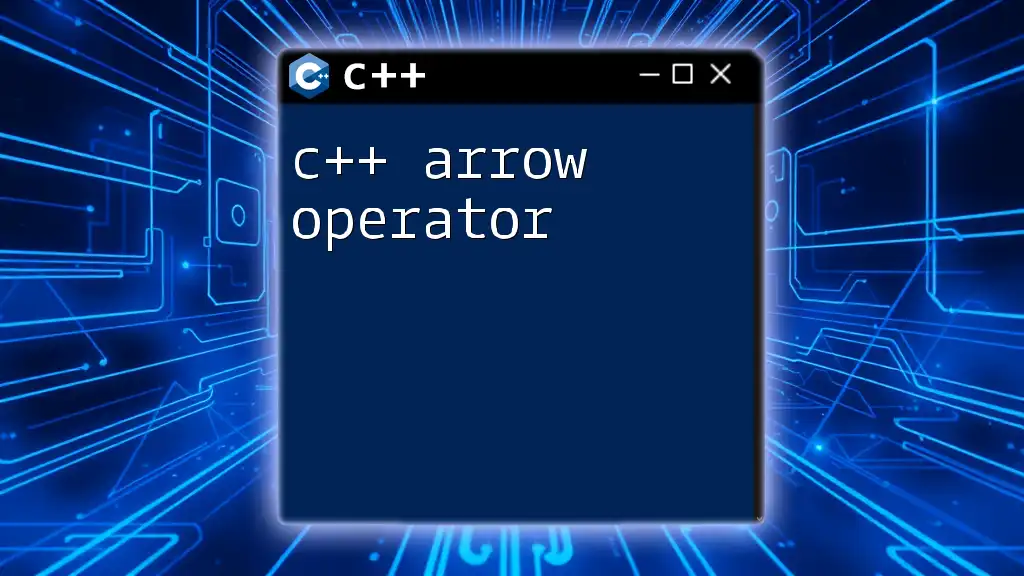
What is a Friend Operator?
A friend operator in C++ allows specific functions or classes to access private and protected members of another class. This concept is crucial when operator overloading is needed, and it provides a way to handle operations involving non-member functions or classes while still respecting encapsulation.
What sets a friend operator apart from traditional operator overloading is its ability to access an object's private and protected data directly. This ability can make your classes much cleaner and more expressive but requires careful consideration of design.
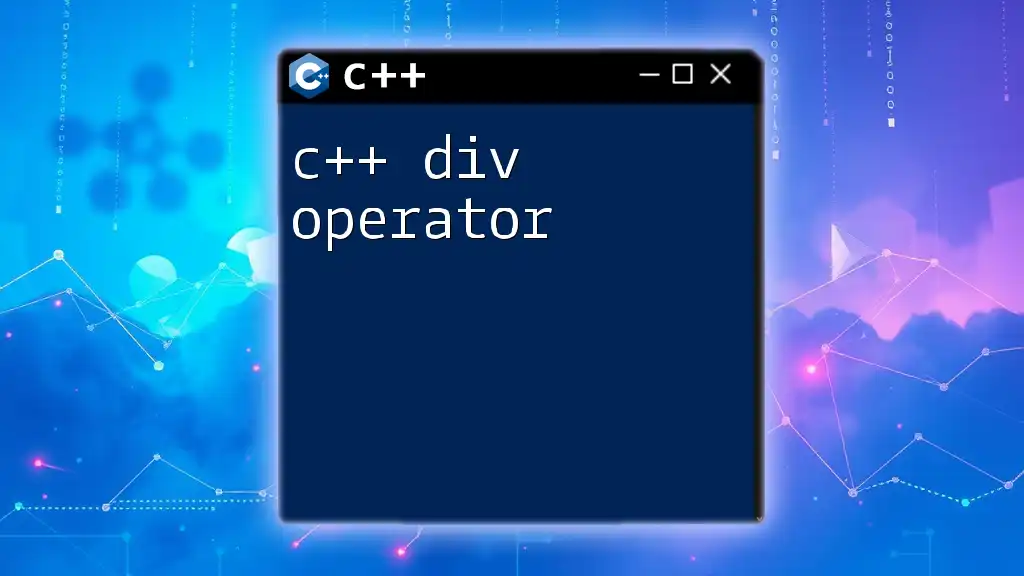
The Role of Friend Functions in C++
Friend functions play a pivotal role in enhancing interoperability between classes. When you declare a function as a friend of a class, that function is granted access to the class's private and protected members. This means you can create powerful interfaces without exposing the internals of your classes indiscriminately.
Syntax of Friend Operators
To define a friend operator, you use the `friend` keyword in the class declaration for the corresponding operator function. Here’s the basic syntax:
friend ReturnType operatorSymbol(Type1 arg1, Type2 arg2);
Example of a Simple Friend Operator Implementation
Let’s take a look at a basic example that demonstrates how to implement a friend operator for input/output operations.
#include <iostream>
class Box {
private:
double width;
public:
Box(double w) : width(w) {}
// Friend function declaration
friend std::ostream& operator<<(std::ostream& os, const Box &b);
};
// Friend function definition
std::ostream& operator<<(std::ostream& os, const Box &b) {
os << "Box width: " << b.width;
return os;
}
int main() {
Box box(5.0);
std::cout << box << std::endl; // Output: Box width: 5
return 0;
}
In this example, we define a `Box` class that has a private member `width`. By defining a friend function `operator<<`, we can access the private `width` without compromising encapsulation. This approach allows for cleaner and more maintainable code when dealing with I/O operations.
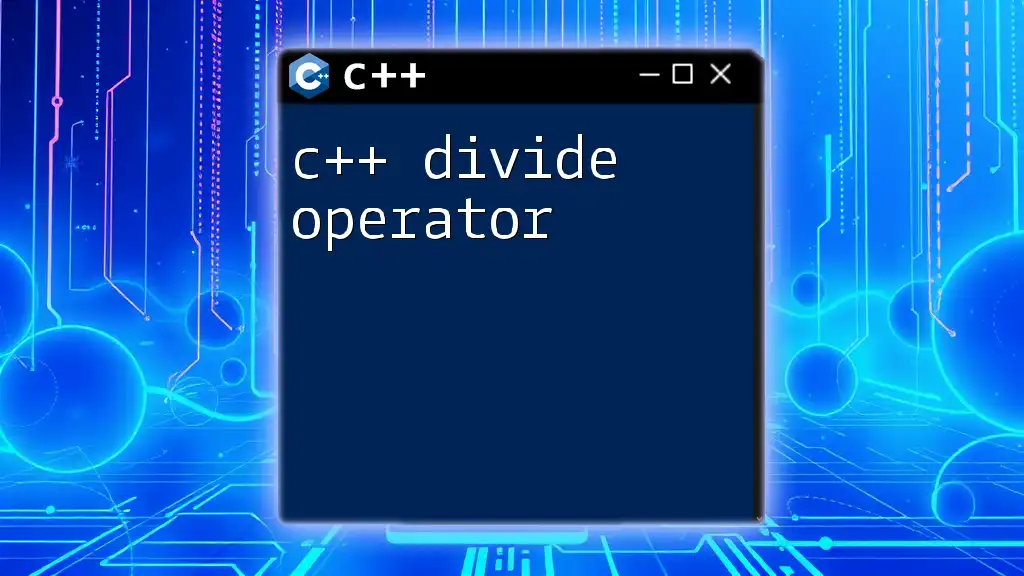
Benefits of Using Friend Operators
Enhanced Expressiveness
Friend operators increase the expressiveness of your code by providing a natural syntax for operations involving complex objects. Overloading operators through friend functions enables you to define intuitive interactions between instances of different or the same classes.
Encapsulation Flexibility
Friend operators enable you to keep your data secure by only giving specific functions access to private members. This flexibility allows you to maintain your class's integrity while still enabling complex operations that may require access to private data.
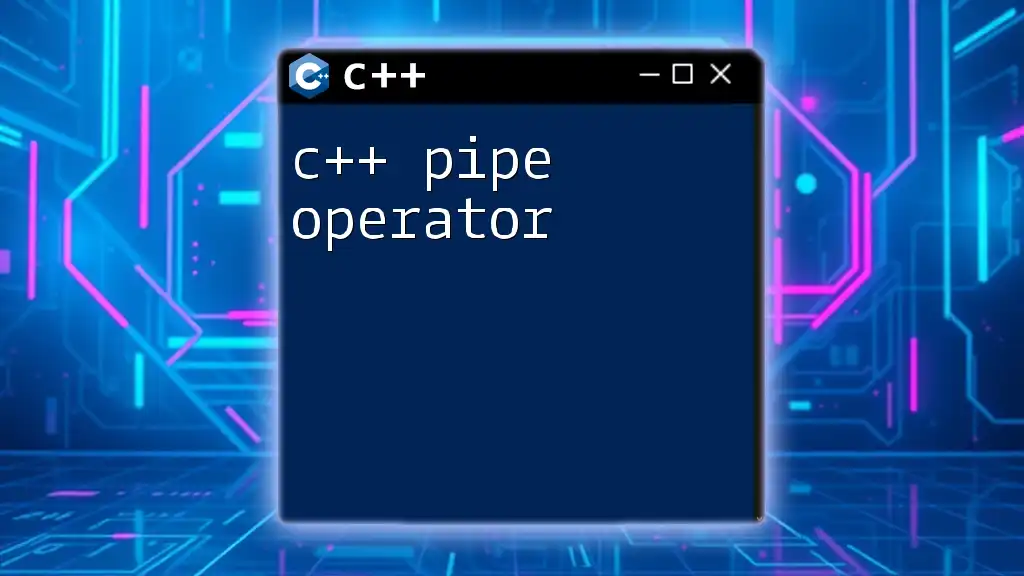
Common Use Cases for Friend Operators
Overloading Standard Operators
One of the most prevalent applications of friend operators is overloading standard operators. This can be crucial for implementing intuitive operations for user-defined types.
Practical Examples:
-
Overloading the `+` Operator: Friend operators are particularly useful for arithmetic operations, such as implementing addition for custom numeric types, like complex numbers or vectors.
-
Overloading the `==` Operator: This operator can be overloaded to define equality checks between objects, making it easier to compare instances of your class.
Example: Overloading `+` for a Complex Number Class
Let’s look at how we can apply friend operators to a complex number class by overloading the `+` operator:
#include <iostream>
class Complex {
private:
double real, imag;
public:
Complex(double r, double i) : real(r), imag(i) {}
// Friend function to overload + operator
friend Complex operator+(const Complex &c1, const Complex &c2);
};
// Friend function definition
Complex operator+(const Complex &c1, const Complex &c2) {
return Complex(c1.real + c2.real, c1.imag + c2.imag);
}
int main() {
Complex c1(1.0, 2.0);
Complex c2(3.0, 4.0);
Complex c3 = c1 + c2; // Use of overloaded + operator
std::cout << c3 << std::endl; // Output requires operator<< to be defined
return 0;
}
In this example, we define two complex numbers and use the overloaded `+` operator to combine them. This operation not only improves clarity but also keeps operations consistent with standard arithmetic syntax.
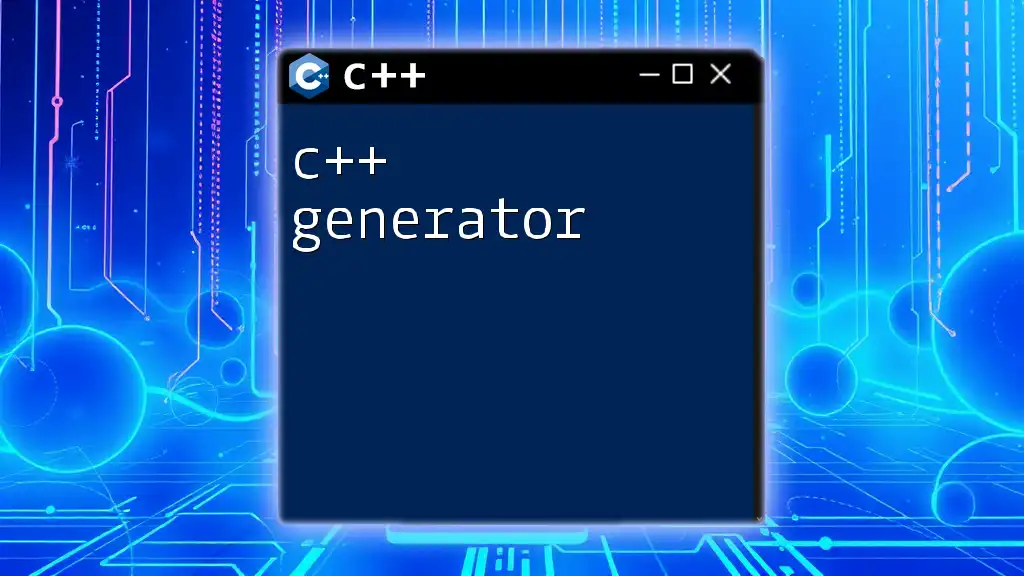
Potential Pitfalls of Friend Operators
Overusing Friendship
While friend operators provide substantial benefits, they can lead to poor design decisions if overused. If too many functions or classes are made friends, it can lead to tightly coupled code, where changes in one class can have unintended side effects on others. Maintaining a clear separation of responsibilities is essential for Code maintainability.
Name Clashes and Scope Issues
Be aware of the potential for name clashes when using friend functions, particularly in larger projects. Since friend functions have access to all private and protected members, they can inadvertently expose or alter class internals in ways that may not be immediately obvious.
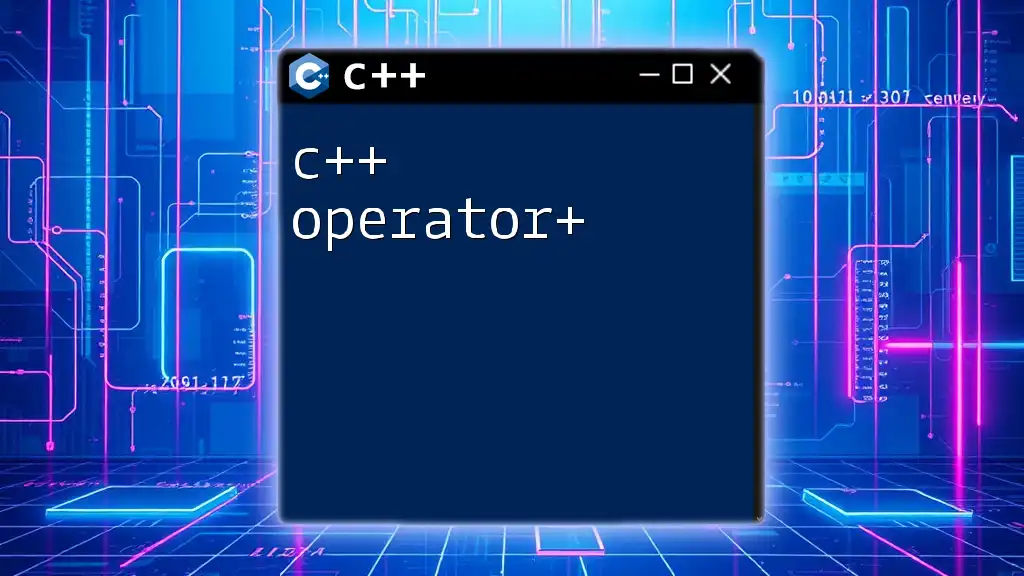
Best Practices for Using Friend Operators
When to Declare Friendship
Declaring friendships should be a thoughtful decision. Use friend operators when you need to define operations that require deeper access to a class's internals without compromising the overall encapsulation.
Keeping Friend Operators Well-Documented
Documentation becomes crucial when employing friend operators. Clearly commenting on why a function is a friend can prevent confusion for anyone reading or maintaining the code in the future.
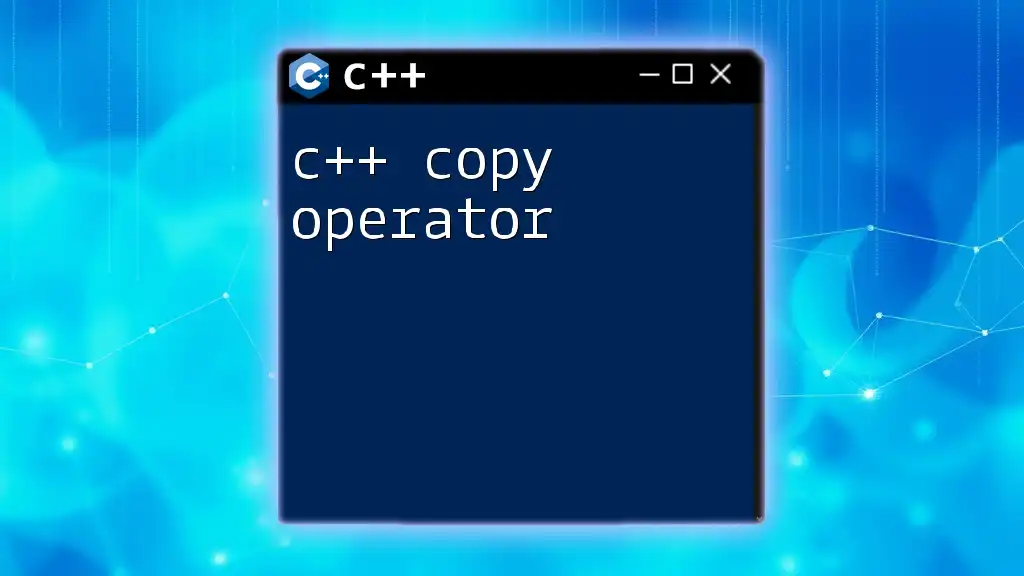
Conclusion
The C++ friend operator mechanism is a powerful feature that enables intuitive operator overloading for user-defined types while still respecting encapsulation principles. It offers expressive, flexible interfaces when implemented judiciously, but it also requires caution to avoid pitfalls such as tight coupling and diminished code clarity.
By learning to apply friend operators effectively, C++ programmers can build more robust, maintainable, and expressive applications that benefit from the beauty and complexity of object-oriented design.

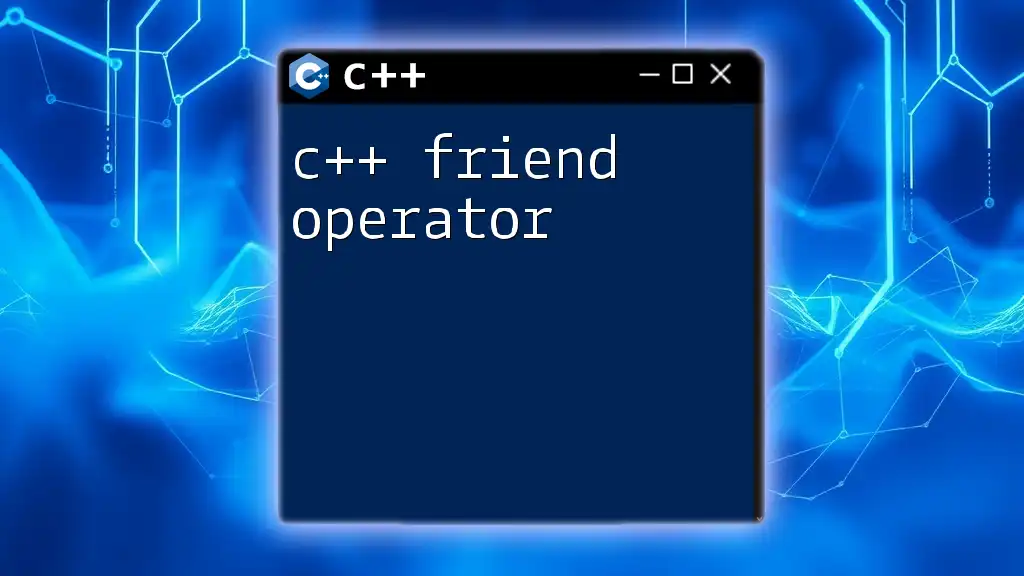





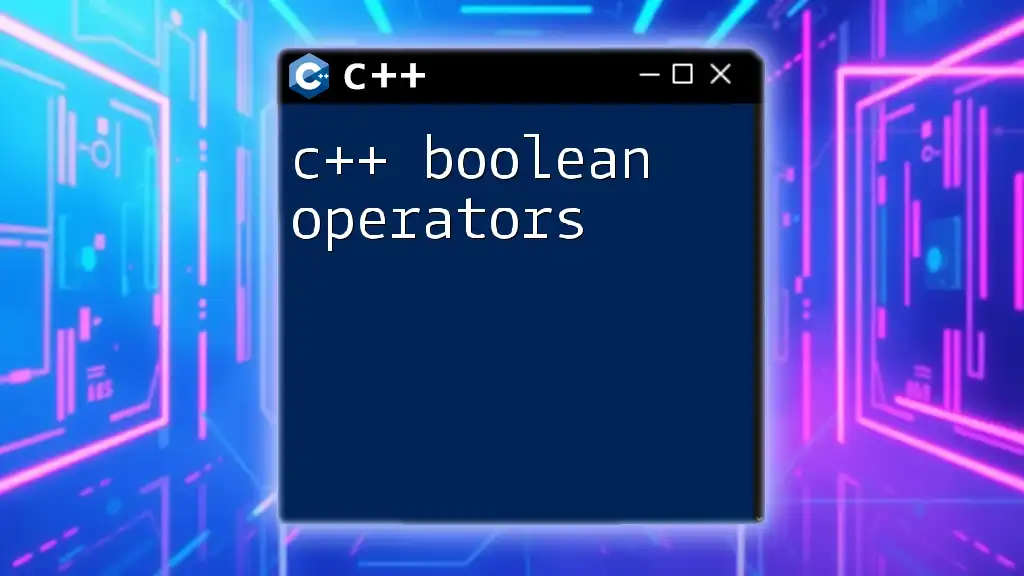
![Unlocking the C++ [] Operator: A Step-by-Step Guide featured](/images/posts/c/cpp-operator.webp)
